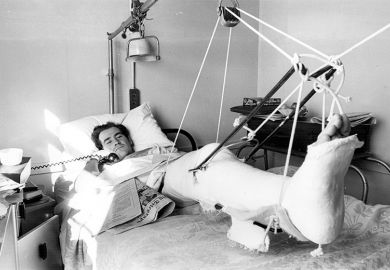Tailor career advice to disciplines
We have moved away from producing a single, one-size-fits-all, annual career planning guide; we now produce 16 guides, one for each academic school.
This followed discussions with academic personal tutors, which helped us to understand that many were not particularly supported in managing career-related discussions with students. With tutors, we produced a detailed guide focusing on issues, ways to manage discussions and key resources to direct students to. This was very well received – the greater affinity that staff have with these guides has been notable.
This tailored approach also includes employer events and fairs. We do not run a large-scale, all-university careers fair, preferring to organise focused and bespoke events targeted at, for example, pharmacists, nurses and midwives, accountants or sports industry professionals.
Engage employers
Use employers as critical friends as you co-design and co-evaluate your career development approaches.
Meeting with an employer advisory group four times a year has helped us to better understand economies, transition pathways and the complexities of the “graduate market”.
During our two-hour meetings, we consider two different discussion questions. For example, what is the best way to use social media to engage students, how will degree apprenticeships affect hiring practices, and are careers fairs still effective for employers?
It is about trying to bring the world of work closer to students and staff.
Engage with students
Engaging with students on how career development activities might be offered can be challenging, but listening is important. Discussing our support services with our student advisory panel was an important step towards learning how students view different academic subjects, occupations, industrial sectors and work locations, thereby helping us to provide many more bespoke services and resources.
To do this, we created “faculty teams” to develop academic school career plans. Team members include careers advisers, employability advisers, trainers and employer engagement officers, who work with academic programme employability champions and school directors. Plans are reviewed monthly and continuously improved, with the hope that co-development of strategies leads to co-ownership, improved effectiveness and better outcomes.
Take career advice to students
Liverpool John Moores University has a large student community and multiple sites. This led us to reimagine how we offer career support in physical locations. In short, we now provide careers support where students want it and when it suits them.
Our new Student Life Building will soon house a Careers Zone and act as the hub, but smaller branch careers zones will be located in areas with high student footfall. These careers zones currently operate out of campus locations and the library, resulting in many more students accessing career support. It has also helped us to meet more employers because we actively encourage employers to connect with students at the zones.
Not every student will be able to access the careers zones, so we have also created an online “CareersZone24/7” resource as part of an alternative way for students to access resources and also engage in e-guidance discussions with advisers.
Data is a must-have – not a nice-to-have
No review of career development support should overlook data and evidence-based practice.
At LJMU, we collect “career readiness” data from students during the registration process each year. Obtaining early data on individual students about their stage of career decision-making and tracking which career development services they have used complement the exit survey that we conduct with graduates during graduation as well as our destinations data. These data provide essential “in-time” information that allows us to plan interventions via school career plans.
We can track, to individual students, who is engaging and who is not, which allows us to target resources appropriately in discussion with academics.
Graduate destination data has been used to compare universities for some time, but the introduction of the teaching excellence framework metrics around employment means that the need to collect and use data in this area will become even more vital.
As the graduate employment market landscape continues to change, it is imperative to operate strategically, to leverage partnerships and to develop evidence-based practice.
Terry Dray is director of graduate advancement and employer engagement at Liverpool John Moores University.
Register to continue
Why register?
- Registration is free and only takes a moment
- Once registered, you can read 3 articles a month
- Sign up for our newsletter
Subscribe
Or subscribe for unlimited access to:
- Unlimited access to news, views, insights & reviews
- Digital editions
- Digital access to THE’s university and college rankings analysis
Already registered or a current subscriber?





